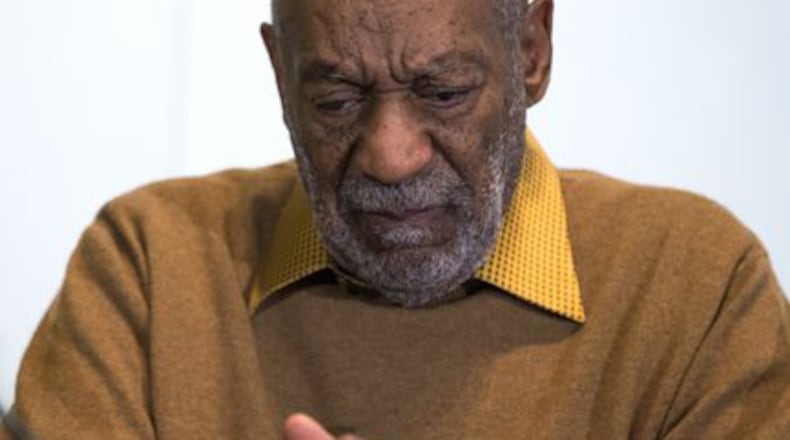As more details emerge from the decade-old deposition of Bill Cosby in a sexual assault civil case, it's hard not to think of the chorus of doubters who spoke out every time an accuser spoke up. They weren't just celebrities, like Whoopi Goldberg and Jill Scott, who both recently backtracked on their support of Cosby. People in grocery stores, on call-in radio shows, on social media – all continued to deny what so many accusers insisted was true.
But once it was reported that Cosby admitted he got Quaaludes to drug women he wanted to have sex with and that he had a practiced method of trying to seduce the women, a good portion of the backtracking sounded a bit like this Tweet from Jill Scott.
That’s not exactly the point, say advocates who counsel sexual assault victims. More than two dozen women have come forward with allegations against Cosby that span decades. Most said nothing publicly for years, largely because the only “proof” they had by then was their word. Here’s what advocates say we can learn from this episode in particular how we view people who come forward with allegations of sexual assault.
Dee Simms, executive director of Crisis Line and Safe House of Central Georgia in Macon:
Someone who says they are a victim of sexual assault, the first thing we owe them is belief, then an investigation. You see it in organizations or businesses where there are multiple accusers against this guy who is out in the public who everyone sees as wonderful. And you've got management hearing the complaints saying the same thing, but they can't believe it so they don't investigate it. They failed to realize that multiple people were saying the same thing and there was one common denominator.
Kim Davis, executive director, Sexual Assault Center of Northwest Georgia in Rome:
In April, because it's Sexual Assault Awareness Month we do a training for law enforcement where we have our sexual assault nurse, one person from law enforcement, an advocate and one of the counselors role plays as the victim. We let (the trainees) see from the moment the victim makes the call to the mock physical exam she goes through to gather evidence. We have (the trainees) in the room when we ask the (mock) victim all the hard questions. Then we ask them to do this: Think about your most recent sexual encounter in great detail and then tell it to the person sitting next to you in great detail. Now, that's what you're asking a victim to do and her experience was violent. It lets law enforcement see, 'Maybe I need to tone down how I question her.'
Barbara Hogan, director, Douglas County Task Force on Family Violence and Sexual Assault:
The initial response from the public is often 'Start by disbelieving.' We say, 'Start by believing.' Everybody wants the 'perfect' victim. People want to see a victim who is hysterical, not calm. We get in our heads, 'Well, I wouldn't have reacted like that,' and then we start asking, 'Well, was that really a rape?' Victims don't report because they don't think anyone will believe them. There's a lot of self-blaming. 'Maybe I shouldn't have had so much to drink. Maybe I shouldn't have been at the party.' It's so frustrating that you have so many women going through this. There's so much we don't understand about sexual assault.
Kesha Gibson Carter, executive director, Rape Crisis Center of the Coastal Empire in Savannah:
How much more did you need to see? The pieces that are playing out now in the narrative are the same pieces that were placed in front of us before. The reason these women came in droves is that they saw comfort in numbers and they saw they were not alone. We need to acknowledge the many, many victims who were not assaulted by a celebrity. Those victims have voices too. I would hope we'd listen to those victims who have delayed reports and give credence to those voices.
Jill Scott's earlier support of Cosby included these tweets:
About the Author
Keep Reading
The Latest
Featured



